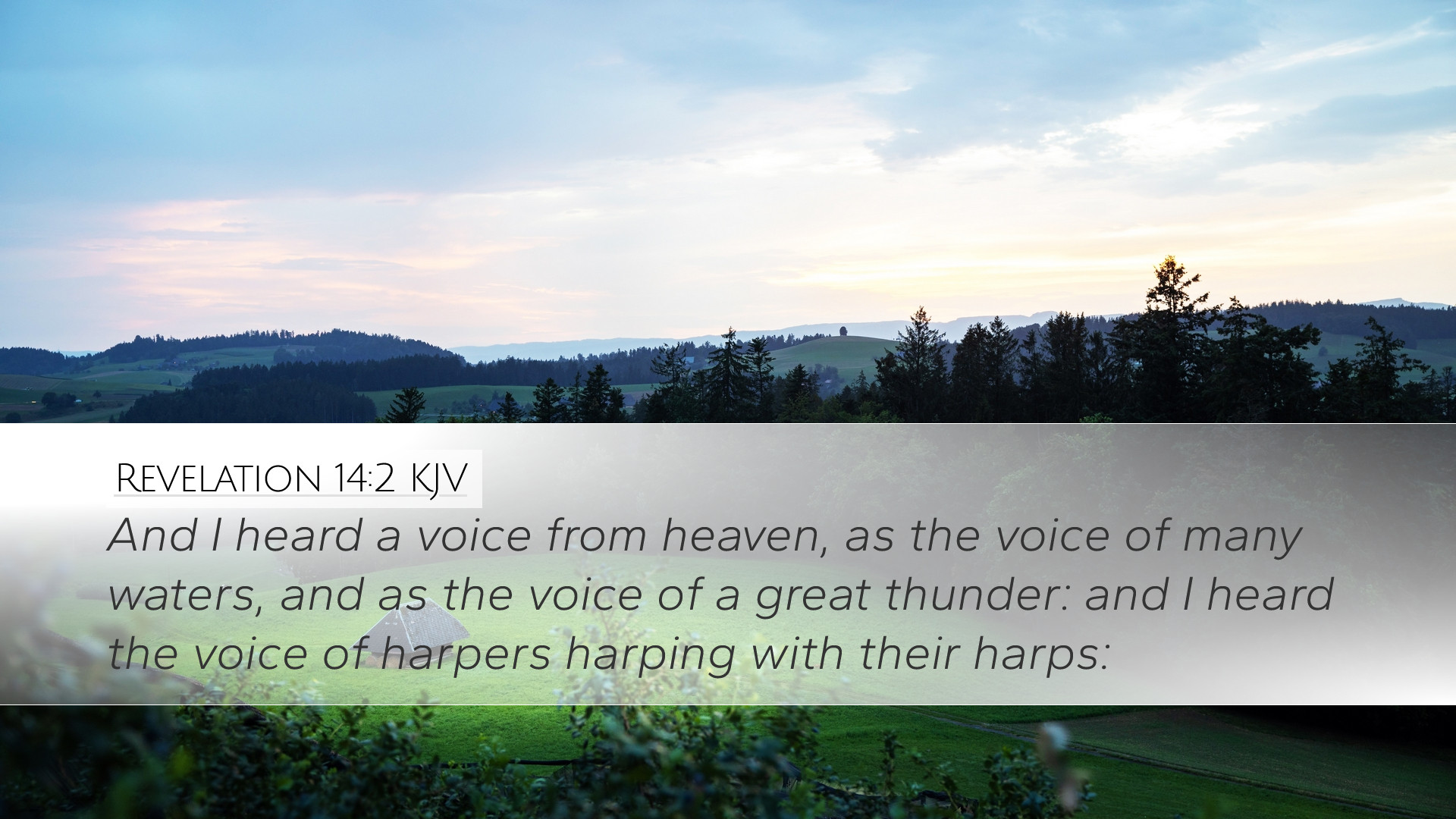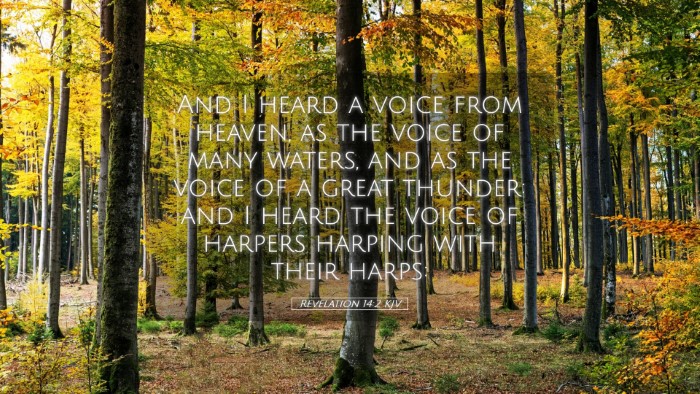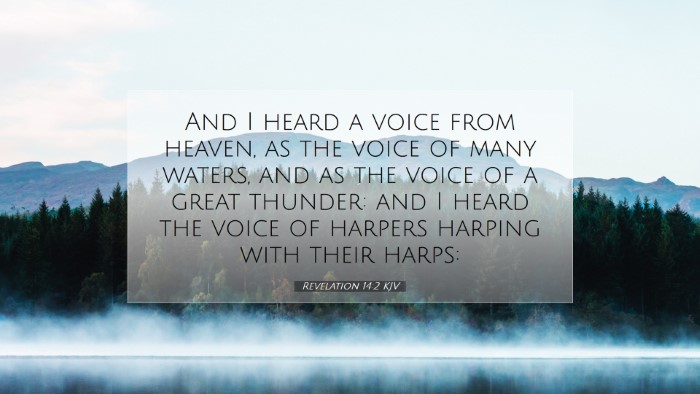Commentary on Revelation 14:2
Verse Context
Revelation 14:2 states:
"And I heard a voice from heaven, like the roar of many waters and like the sound of loud thunder. The voice I heard was like the sound of harpists playing on their harps."
This verse comes within the vision of the 144,000 redeemed, marking a pivotal moment in John's apocalyptic narrative. It emphasizes themes of divine communication, celestial worship, and the distinctive character of God's people during tumultuous times.
Insights from Public Domain Commentaries
Matthew Henry's Commentary
Henry provides insights that underscore the significance of the heavenly voice:
- Heavenly Authority: Henry highlights that the voice from heaven symbolizes God's authority, reminiscent of the powerful sounds in nature that reflect divine majesty. The voice, like the roar of many waters, conveys the idea of overwhelming strength and the purity of God's intent.
- Harmony in Worship: The imagery of harpists playing suggests an atmosphere of worship and unison among the redeemed. This signifies that in the presence of God, all creation engages in a harmonious expression of praise.
- Reassurance to the Faithful: The voice is a source of comfort, reassuring that despite earthly adversities, God's promise of redemption remains potent and secure.
Albert Barnes' Notes
Barnes focuses on the symbolic meanings expressed through the sounds and imagery presented in the verse:
- Symbolism of Water: The "roar of many waters" often symbolizes the power of God’s word throughout Scripture. It represents the life-giving and purifying aspects of divine revelation.
- Judgment and Majesty: Barnes argues that the thunderous nature of the voice emphasizes impending judgment but serves also as a reminder of God's ultimate sovereignty.
- Heavenly Choir: The parallel of the voice with harpists illustrates the celestial beings engaging in worship, thus expressing the unending praise directed toward God. It portrays a vivid image of how worship transcends the earthly realm.
Adam Clarke's Commentary
Clarke's commentary delves into the implications of this verse for understanding the characteristics of God's people and the nature of His voice:
- Recognition of God’s Voice: Clarke emphasizes the importance of recognizing the divine voice among competing sounds of the world. The true followers of Christ discern this voice of authority amidst chaos.
- The Composition of Worship: He notes how the mention of harpists signifies that worship is not liturgical but deeply personal and communal, honoring God through collective creativity.
- End times Message: Clarke ties the passage into the context of end-time events, where the Church's ultimate hope is wrapped in the divine orchestration of redemption and joy experienced in God's presence.
Theological Significance
Combining insights from the commentators, Revelation 14:2 can be seen as a rich tapestry woven with divine authority, the power of worship, and the hope of redemption. The voice from heaven serves as:
- A Call to Worship: The passage invites believers to participate actively in worship, thus hinting at the anticipatory joy of heaven.
- A Reminder of God's Sovereignty: In various trials, hearing God's voice can bring peace and assurance of His plans and purposes.
- A Vision of Community: It paints a picture of the Church as a unified body engaged in eternal worship, establishing the notion that our relationship with God is both personal and communal.
Application for Believers
For pastors, theologians, and students of the Word, this verse offers profound implications for both personal faith and corporate worship:
- Listening Posture: Believers are encouraged to adopt a posture of listening and discernment to identify the authentic voice of God amidst worldly distractions.
- Creating Sacred Spaces: Engaging in worship that resembles the harpists' ministry encourages creativity in expressions of faith, fostering environments where the Spirit can work.
- Hope in Turmoil: The reassurance present in this verse can act as a source of encouragement to those undergoing spiritual battles or grappling with societal challenges, thus reinforcing the faith community's role in mutual support.
Conclusion
As Revelation 14:2 resonates through the ages, it stands as a profound reminder of the compelling beauty of divine communication and the vibrant life of worship experienced in faithful response to God’s voice. Each believer is called not only to listen but also to actively engage in the melody of heaven that has begun even now, shaping the church’s identity in anticipation of the full realization of God’s kingdom.


